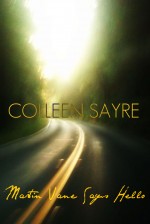What is it with movie and television writers and producers that in the quest to satisfy some strange idea of what the audience wants, they feel compelled–if not justified–to change what is good–and sometimes great–to schlock?
I’m talking about books and movies and books made into movies or television series here. How does a book we love become something else entirely when adapted to the screen–both big and small?
When a story is massive (such as George R.R. Martin’s A Song of Ice and Fire series), leaving out the details and changing the sequence of events, merging characters or killing them off altogether, sometimes makes sense. But only a little. Frankly, I’d much rather have 20 in-depth chapters of a series done well (in other words, a continuation of GOT) than 10 mutilated blood-drenched sex romps that have absolutely nothing to do with the original books from whence they came. I’m thinking of True Blood here, a ridiculous perversion of Charlaine Harris’ Sookie Stackhouse novels.
Harris’ stories are funny, inventive, and original. HBO’s version is anything but. Yet it persists, fulfilling some dark, bloody fantasy that seems to have little to do in the way of story-telling and makes much ado about nothing much besides blood and sex. Is this what we’ve come to in our society? The Red Wedding of GOT pretty much followed the storyline of the books. But with TB, we just get the red without the satisfying story-telling accompaniment.
To my mind, if a book is good enough for someone to want to make a movie featuring it’s characters and story, why is it necessary to then chop it into little bloody bits and refashion it into something that is pretty much unrecognizable? Why change it? Why reconfigure it to fit a time frame that is unrealistic? If you want to do a book justice, give it the time it needs to unfold and develop. If you want to cut it down to size, at least keep the story true to the original. I’m not saying that every book should become a franchise of sequel after sequel, spreading the story thin to make more money. But if you take on the challenge of a seven book series, be realistic about what you’re tackling.
Popular thinking, however, seems to be this: if a book has a good following, it can be made even better! Change the characters, add blood and frontal nudity, forget the plot, and voila! An even bigger audience! Why? It seems the message we are sending as an audience is that we won’t watch unless all our baser senses are titillated. And that bothers me. Life is light and dark, clothed and unclothed. I’m all for a balanced story. But tell the story as it is, warts and wars and all without second-guessing the author’s original intent. A good story is a good story. I say just leave it alone. Setting it on fire won’t make it better.
What do you think? Are we suckers for a cheap thrill or does the perversion of good stories bother you, too?







I love the true story books
LikeLike
Many people think of movie making as a form of translation; it is not. Movie making is about money making. The producers and moneymen of Hollywood go to great lengths to provide what the paying audience wants, not what they “think” a paying audience wants. If novelists used focus groups, there’d hardly be a good book, but many would sell. Oh, wait! That’s what genre writing attempts. Most blockbuster books (moneymakers, like movie) fill an expected formula, and there are many, many people out there who only want what they can expect. That’s how MacDonalds works. And the Iron Man series, and Bond, and Sherlock Holmes, etc. So, to castigate Hollywood for failing to translate when they are out only to co-opt is like berating McDonalds for not making Chicken Cordon Bleu. They’ll laugh, and rightly, all the way to the bank. You want the story that’s in the book? Read the book.
LikeLike
Hi, Charles. Thanks for your comment. I guess I’m one of those people who believes that when it comes to making movie adaptations, there should be some sense of integrity of the source material retained if not the integrity of the producers. I understand the need to make money–movie making is a business, after all–but that’s no excuse for anyone to run roughshod over someone else’s blood, sweat, and tears. Then again, I’m not a fan of literary rip-offs in any form, including fan-fiction, regardless of the seeming need for a reduction of all forms of entertainment to pander to the lowest common denominator. It’s my belief that it is precisely because movie-makers have been given the right to do as they will for the sake of a buck–and as a society we have allowed it–that there is comfort in saying, “It’s okay. We made a lot of money and that’s all that matters.” They may laugh all the way to the bank, but it doesn’t make it right.
LikeLike